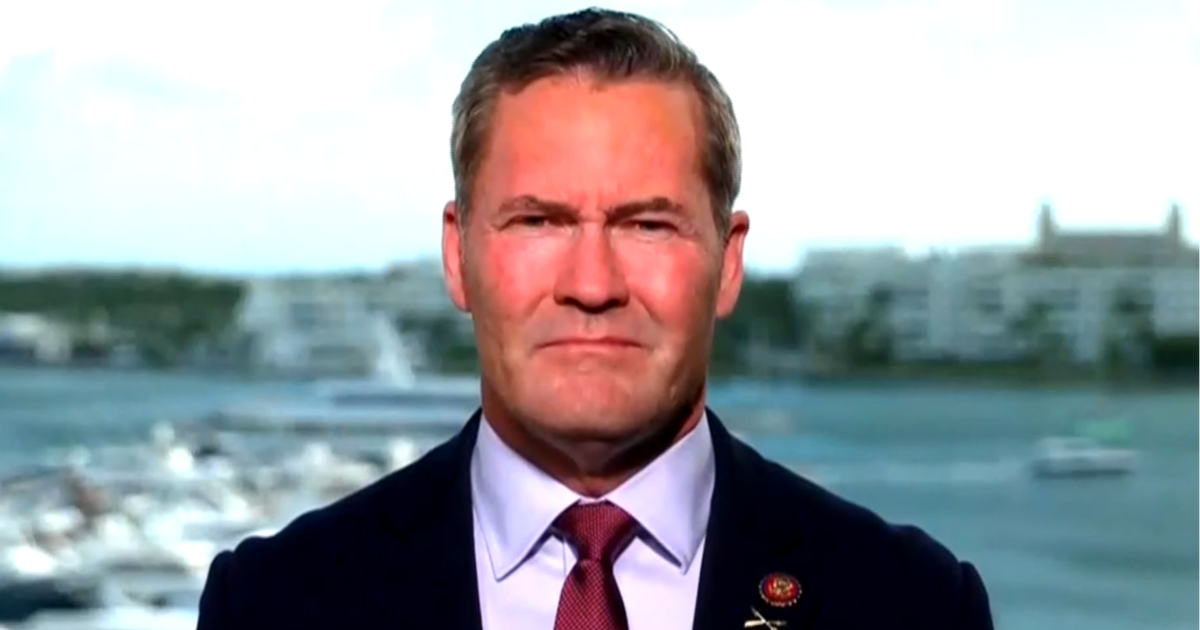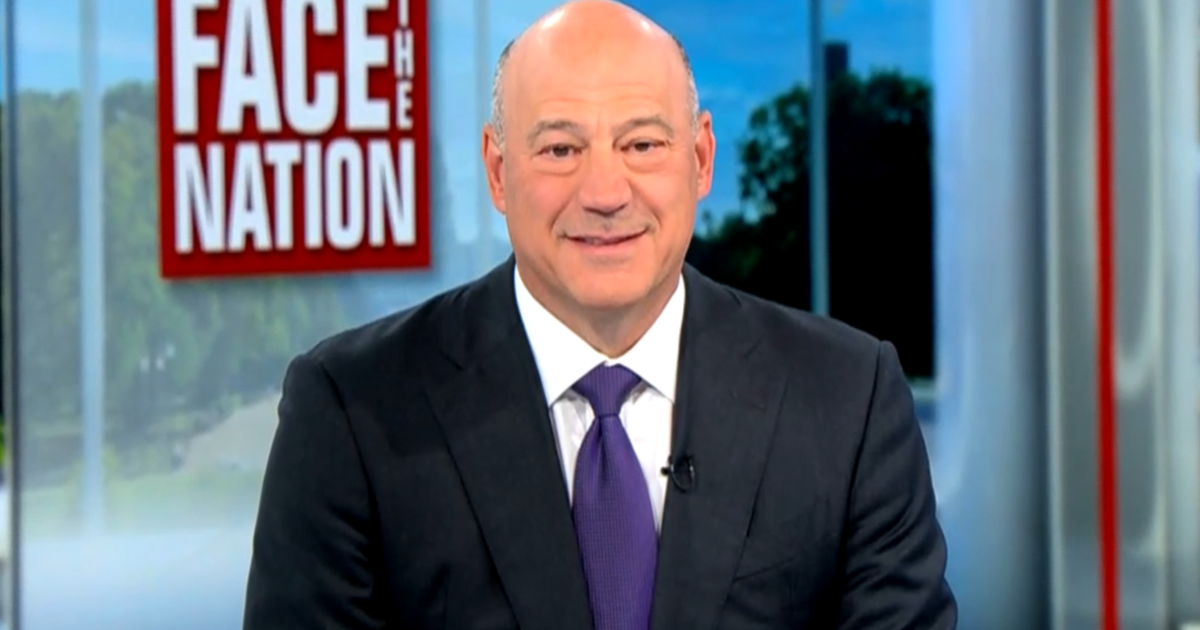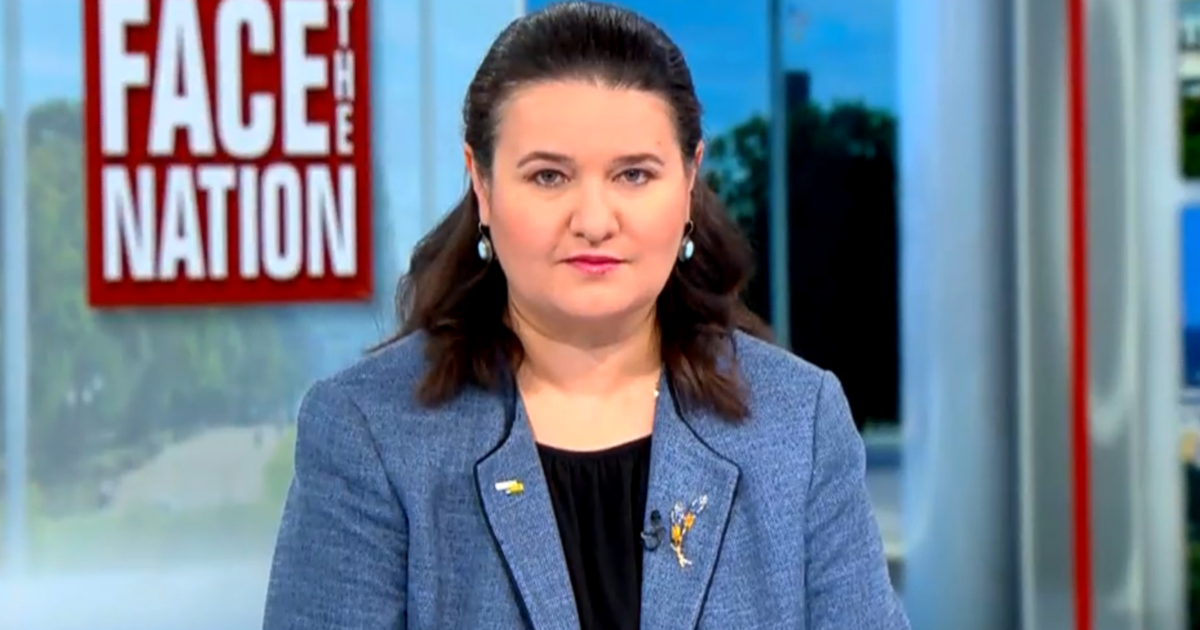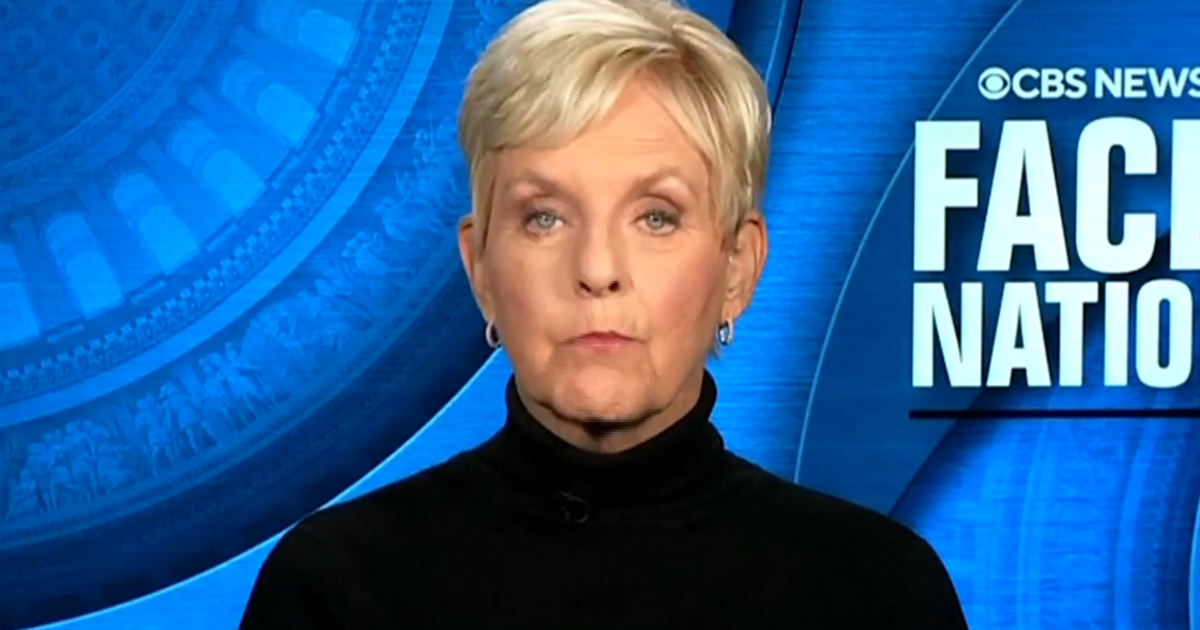Transcript: Acting White House chief of staff Mick Mulvaney on "Face the Nation," March 17, 2019
The following is a transcript of the interview with acting White House chief of staff Mick Mulvaney that aired Sunday, March 17, 2019, on "Face the Nation."
MARGARET BRENNAN: Good morning and welcome to FACE THE NATION. Happy St. Patrick's Day. We begin with acting White House Chief of Staff Mick Mulvaney and Happy St. Patrick's Day to you.
MICK MULVANEY: And to you Ms. Brennan. So.
MARGARET BRENNAN: I want to get right to it. In the wake of this horrific terror attack in New Zealand. You know there's a lot of parsing of the president's own language in referring to what happened here. Broadly speaking, the number of attacks and support for white supremacy is up, according to the Southern Poverty Law Center. And even a Trump appointed attorney in the state of Virginia, Thomas Cullen was recently quoted as saying, "White supremacy and far right extremism are among the greatest domestic security threats facing the United States." Has the president been briefed on this?
MICK MULVANEY: I don't know who that gentleman is. Certainly the president's briefed on all of--
MARGARET BRENNAN: You know who the Southern Poverty Law Center is?
MICK MULVANEY: I do, I do. The president's absolutely briefed on all of the threats, both domestic and international. But I want to push back against this idea that every time something bad happens everywhere around the world, folks who don't like Donald Trump seem to blame it on Donald Trump. I'm hoping we can get--
MARGARET BRENNAN: I'm not blaming it on the president, I was asking about--
MICK MULVANEY: I didn't say- didn't say--
MARGARET BRENNAN: --his characterization.
MICK MULVANEY: I didn't say you. I'm saying that that's clearly what some folks wanted- want to do. I've heard other members of- of the Democrat Party trying to do it, folks at the Southern Poverty Law Center here trying to do it. This is a tragic thing that happened in New Zealand--
MARGARET BRENNAN: They're just saying the number of white nationalist groups has surged by 50 percent.
MICK MULVANEY: Since Trump has become office right?
MARGARET BRENNAN: Well in the past year.
MICK MULVANEY: There you go. So, he- here's the point. Why can't we--
MARGARET BRENNAN: So you disagree that it's a rising threat?
MICK MULVANEY: I- I- I- I disagree that there's a causal link between Donald Trump being president and something like this happening in New Zealand.
MARGARET BRENNAN: But that's not the argument or the suggestion there--
MICK MULVANEY: Okay, good.
MARGARET BRENNAN: --by the judge or by that statistic. Is the president aware that this is a rising threat?
MICK MULVANEY: Again, a rising threat. I think the president you saw- you saw him asked the other day does he think it's a rising threat and he says, no, I think there's information that would back that up. The issue is how do you stop these crazy people, whether or not there's one of them or four of them, doesn't make a difference if they're willing to go on live TV and stream the murder of people. So I think that's where the time is better spent. Instead of worrying about well, who's to- who's to blame, how do we stop from doing this. Donald Trump is no more to blame for what happened in New Zealand than Mark Zuckerberg is because he invented Facebook. There are some terrible people in the world. We need to work with our partners, of which New Zealand is one of, and to try and figure a way to find them, expose them and bring them to justice.
MARGARET BRENNAN: Well President Trump and certainly during the campaign talked quite a lot about the need to be specific, to name a threat in order to counter it. So why minimize it? Why not directly address white supremacy and specifically Islamophobia?
MICK MULVANEY: Yeah I get a lot of questions about--
MARGARET BRENNAN: Because a number of world leaders did and the president didn't.
MICK MULVANEY: I get a lot of questions from people saying why-- you need to tell the president to do X, you need to tell the president to go and give it an Oval Office address on this or on that. That's not how the system works. The president communicates in his way. Different presidents have communicated in their way. I don't think anybody can- can claim that Donald Trump hasn't done exactly what we would want him to do in this circumstance. We've immediately reached out to our allies. We've expressed the absolute disgust at the tragic- at the tragic events. We're doing what presidents are supposed to do.
That doesn't mean it's gonna make everybody happy because of the hyper partisan times we live in. But again, I really-- it frustrates me just as a citizen that everything something- every time something goes wrong around the world now, not just in our country, somehow the president of the United States must be responsible. And that's just- that's absurd and it doesn't help contribute to the dialogue that's necessary to fix these problems.
MARGARET BRENNAN: Point taken, but the President of the United States carries a megaphone louder than anyone in the world and arguably this president likes to use his. So because you're frustrated, why not remove any shadow of a doubt? I mean during the campaign, as you know, as a candidate the president called for a ban on all Muslims entering the United States. He said Islam hates us. This kind of language in the past leads to these questions of why isn't the president now directly using that megaphone to condemn it.
MICK MULVANEY: Well then ta- take- take- take- take the words and put them in one category and take the actions and put them in another. Something the president doesn't get hardly any credit for or any attention to is the work he's done in defense of religious minorities all around the world up to and including Muslims in the Middle East. Some of the religious minorities that are the worst oppressed to the Middle East are some of the ones that this administration has been doing- going to great lengths to protect. So I hear what folks says, "Oh Donald Trump said this during the campaign." Look at what we've done while we've been here. I don't think anybody could say that the president is anti-Muslim.
MARGARET BRENNAN: Well the president's tweeting now about a TV host who was suspended for anti-Muslim rhetoric. So it's- it's I think a fair question to ask you about this but I want to move on to one of the fights that is going on in Congress and questions from a number of Senators about exactly what programs are going to lose funding--
MICK MULVANEY: Sure.
MARGARET BRENNAN: --in order to put together funding for the border wall. When will the White House give this detailed list, specifically on military projects, to Congress?
MICK MULVANEY: It could be a while and here's why. Here's- here's what's happening, is that we've already told Congress this, which is that none of the programs that were scheduled to be started or what we call obligated in 2019, so between now and the end of September, will be impacted at all.
MARGARET BRENNAN: The service chiefs have told Congress they have that list but the White House is not--
MICK MULVANEY: No--
MARGARET BRENNAN: --handing that list over.
MICK MULVANEY: No no that that's abs- I know of no list. And if anybody should it would be me. There's no list of projects that are absolutely going to not be funded so that the wall can be. What it is is a list of programs that fit the criteria that I've just laid out for you, which is that they are meant to be funded beyond the end of this fiscal year. Why is that important? Because if we- if it's going to be a project that would have been funded say in 2021, okay, it gives us another couple of years to call backfill. Congress will pass another appropriation this year, next year, so that ultimately none of the programs would be impacted.
MARGARET BRENNAN: Senator Tim Kaine who sits on Armed Services is going to be on the show later in the program. But when we spoke with him, he specifically said that he thinks the White House is withholding these details until after this upcoming vote on the veto override occurs. In other words you're trying to keep Republicans onboard and if you fully inform them about what you're going to do to their district, then you might lose their vote.
MICK MULVANEY: I- I don't- I'll watch the show and in fact if I catch Tim in the green room, I'll ask him what the basis is for that. Does he just think it because he wants it to be true or someone told him there was actually a list? Because again, I'm Chief of Staff. I'm also still technically over at the Office of Management and Budget.
MARGARET BRENNAN: And you still don't know what's getting cut?
MICK MULVANEY: And I know of no list that specifically--
MARGARET BRENNAN: And you don't know what's getting cut?
MICK MULVANEY: That's correct. I know of the universe of things that might be delayed or reduced or cut in a very extreme circumstance that could be funded- they used to fund the wall, but a list of a decision that's already been made saying this money is going to be cut and spent over there, that's not been made yet.
MARGARET BRENNAN: So remove any doubt you say, no matter what these details are, you still have the votes to override--
MICK MULVANEY: Oh yeah.
MARGARET BRENNAN: --this veto.
MICK MULVANEY: Absolutely.
MARGARET BRENNAN: To block any kind of override.
MICK MULVANEY: Yes, no we fully expect the veto override to fail in the House.
MARGARET BRENNAN: All right, thank you, Mick Mulvaney, for joining us.
MICK MULVANEY: Thanks Margaret.



